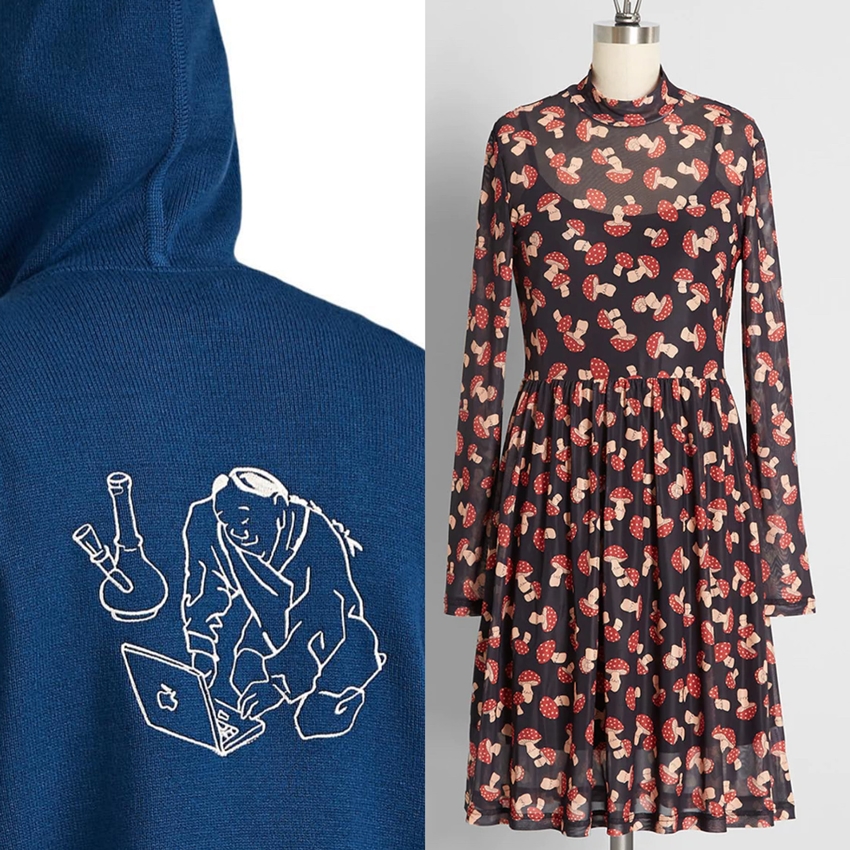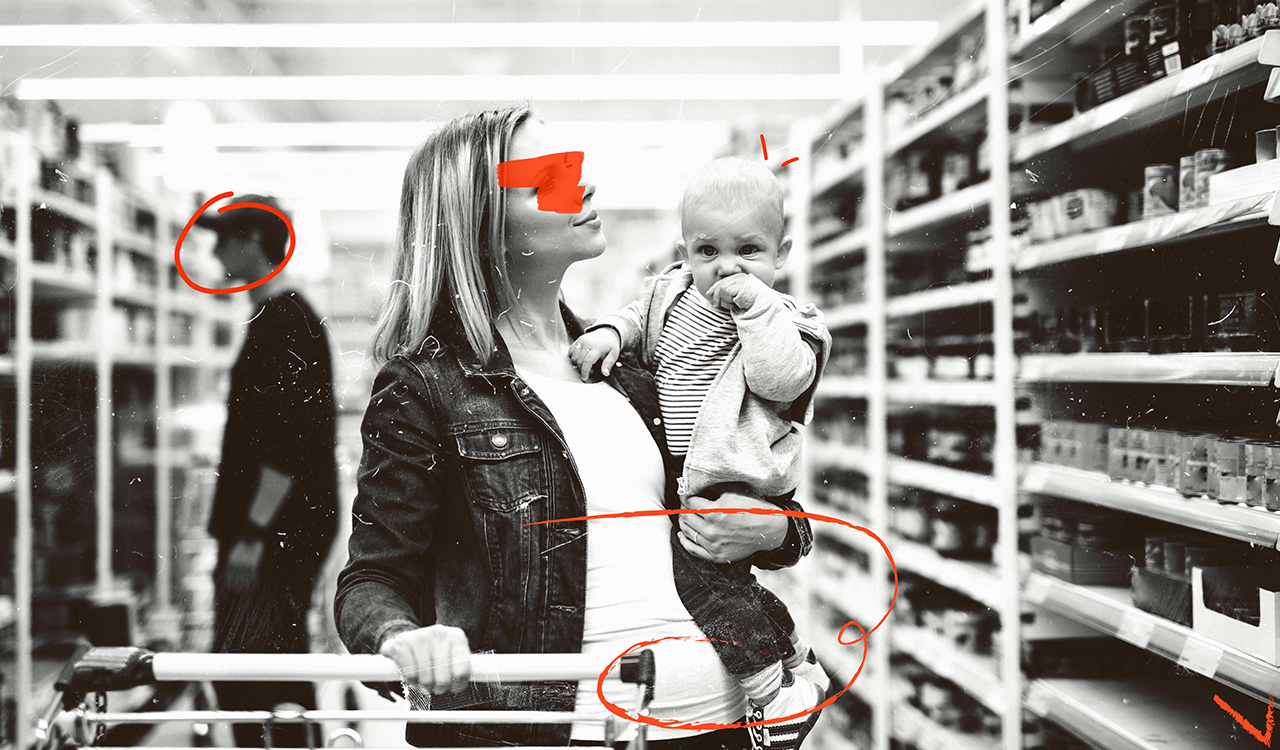Cannabis has come of age and on the “high” heels of 4/20, the cannabis insiders’ unofficial/official holiday, fashion retailers should take note. The 2022 Cannabis Festival takes place in Washington DC the weekend of April 24. We’re in a weed wave and retailers are in love with the concept of Maryjane. Nary a day goes by when I’m not sent a pitch for some type of new cannabis product or accessory. What a different world it is from less than a decade ago, when cannabis was still illegal for recreational use across the U.S. Cannabis consumption skyrocketed during Covid and customers show no signs of putting down the pipe now that regular activities have resumed.
Global cannabis sales are predicted to jump by 22 percent to over $35 billion in 2022 … but that’s nothing. Analysts predict that, by 2026, cannabis sales around the world will surpass $61 billion. With cannabis beverages on the rise, and edibles now gaining on smokable products, there seems to be no slowing down in both recreational and medical cannabis consumption in the US.
The varying nature of cannabis legality hasn’t stopped American brands such as the New York-based BarkBox, Impossible Foods, and even PETA from throwing their puns into the ring of cannabis references on social media.
Subversive Becomes Mainstream in a Decade’s Time
Cannabis references are a quick way for companies to let next gen customers (and employees) know that they are in on the joke. You may not be surprised to know that ice cream maker Ben & Jerry’s is firmly affixed aboard the cannabis marketing bandwagon, with ice cream flavors like “Half Baked” and “Phish Food.” But the Canadian H&R Block’s “Puff, puff, tax” tweet might surprise even the most progressive tax filer.
Of course, cannabis is legal throughout all of Canada. In the U.S., however, cannabis legality is more varied –– with opinions and stigma still rampant. Three quarters of the U.S. now have legal cannabis of some form. Even in states that have yet to legalize cannabis, sympathies towards legalization run high.
The varying nature of cannabis legality hasn’t stopped American brands such as the New York-based BarkBox, Impossible Foods, and even PETA from throwing their puns into the ring of cannabis references on social media. Nebulous legality hasn’t stopped retailers from using cannabis references in their marketing messages, either.
Tons of unexpected players are getting in on the cannabis game, from Scotts Miracle-Gro to Anheuser-Busch. Celebrities aren’t immune to the draw of $33 billion in annual market share, either. Jaleel White (of Family Matters fame) came out with a Purple Urkel cannabis strain. Carlos Santana and Melissa Etheridge have also come out with their own custom product lines.
Pot Brands Set the Precedent for Community Building
Not unlike Soul Cycle, cannabis brands succeed by creating a tribe. Successful cannabis brands go beyond just hawking a plant … they’re hawking a lifestyle. Make no mistake, cannabis has given rise to brands that rival even the most successful CPG products.
Kikoko, a San Francisco-based company was one of the first to create a cannabis wellness brand unabashedly for women. The women-founded, women-centric cannabis company discovered there were a lot of women who could benefit from the anxiety-relieving, sleep-inducing, pain-fighting qualities of cannabis – from stressed-out 21-year-olds to menopausal women dealing with the tribulations of growing older, including low libido.
With a line of products that range from cannabis-infused herbal teas, honey, mints and pre-roll’s, Kikoko has differentiated itself by developing efficacious, low-dose products in gorgeous, chic packaging with bright colors and not a weed leaf in sight. Their pre-rolls only use women-grown cannabis to support the small, artisanal farmer. “When we launched, we wanted to break the stigma around cannabis and create an upscale offering,” says co-founder Amanda Jones, “We founded the company for a friend with cancer, and we intentionally set out to create products designed and dosed for women that they would not be afraid to try.”
But this hasn’t slowed down the pace of growth in the slightest. Like in other areas of the retail industry, demand mitigates supply. Every third billboard in Southern California alerts customers to the presence of a different dispensary. Hybrid cannabis and apparel brands are particularly popular in LA, with brands like Sundae School popularizing the concept of “smokewear.”
There are cannabis brands for every segment of the population, and an intoxicating product for every imaginable activity –– from pre workout THC drink mixes for athletes to transdermal pens for chemotherapy patients. Some cannabis brands opt to use cheeky, subversive messaging that references the product’s previous illegality, like selling flower in fake “EVIDENCE” bags.
Other brands, however, aim to normalize the use of cannabis and to reduce the stigma around cannabis users. MedMen, the largest cannabis retailer in Southern California, made headlines a few years ago for spending $2 million in ad dollars on a widespread campaign encouraging viewers to drop the “stoner” label. Of course, being called a “stoner” is a minor concern when more than 40,000 people –– including a disproportionate number of African Americans –– are still behind bars for non-violent, cannabis related offenses. And yes, there’s already a weed company called Farmer and the Felon that’s dedicated to raising funds to fight for their release.
Are Magic Mushrooms the New Cannabis?
The fashion industry is always ravenous for the next big thing. There’s no denying that cannabis has been the topic du jour of the Covid era. Increased legalization and normalization mean that consumers will soon search out greener and increasingly, more psychedelic pastures. Cannabis may be an explosive global market, but it doesn’t have the street cred it once did. Enter magic mushrooms.
If you haven’t noticed mushroom patches on everything from Vanessa Hudgen’s line for Fabletics to jumpers at Walmart owned-Modcloth, then you haven’t been paying attention. Magic mushrooms, or also known as psilocybin, have replaced kale as the fashion industry’s favorite vegetable. The practice of micro-dosing –– i.e., taking a low dose of a psychedelic on a regular basis, is a practice that’s taking hold in Silicon Valley. This trend is being encouraged by a barrage of documentaries, such as Fantastic Fungi, that tout the benefits of mycology and surrounding practices.
In-group identification is a hell of a drug. Cannabis and psilocybin references in mainstream retail make a fascinating study for this reason. Including a cannabis or mushroom reference, image, or product can identify a retailer as part of the in group just as quickly as posting a rainbow pride flag can show a retailers’ sympathy for LGBTQ+ causes.
And much like when a retailer posts a pride flag or #blacklivesmatter hashtag, brands should be cautious not to affiliate themselves with a movement without paying homage to those who sacrificed of themselves for the rights we have today. Call-out culture hasn’t caught up with psychedelic legalization yet, but it will. Brands will soon be expected to go beyond 420 tweets and mushroom patches, to actively lobby for the legalization of plant medicines and the release of non-violent offenders.




